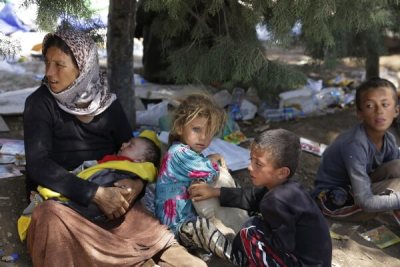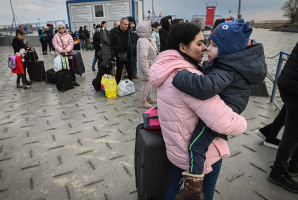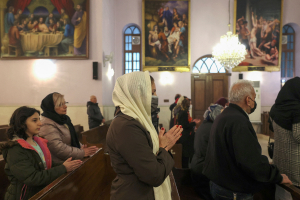Remembering ISIS’ Yazidi genocide, six years later

Six years ago on August, 3, ISIS invaded the Sinjar region in northern Iraq, the quiet homeland of the Yazidi people. It only took a few hours for ISIS to seize Sinjar City and kidnap or kill all who were unable to flee in time. Those who did manage to escape ran to Mount Sinjar without food, water, or medical care, with ISIS hot on their heels.
An ancient religious group familiar with being persecuted by their neighbors, Yazidis had lived simple lives in the rural region. But the attacks by ISIS would have long-lasting consequences.
It took U.S. airstrikes to push the ISIS militants back as Kurdish forces made a safe passageway for Yazidis to descend Mount Sinjar later that month. But in the heat well over 100 degrees, hundreds of Yazidis — many of them children and infants — had already died on the mountain despite airdrops with aid from the U.S. and other military forces.
Meanwhile, ISIS attacked Yazidi villages in the surrounding area. Upon capture, the men and women were separated. The men who refused to convert to Islam were rounded up to be shot and killed. Captured women and children often heard the gunfire that killed the men of the village and saw the evidence of mass murder as ISIS fighters returned with their clothes stained by the blood of their husbands, sons, and brothers.
Militants took many of the younger women to be bought and sold as sex slaves. Women too old to enter the slave trade were shot. The region was soon littered with mass graves.
Yazidi children were forcibly converted to Islam. Thousands of boys were forced to become ISIS fighters, tortured and starved in the process. Today, many of these former child soldiers are missing arms or legs lost while fighting for their abductors.
ISIS made no secret of its desire to destroy the religious minority group it called "pagan" through the use of forced conversion, enslavement, and mass killings. The overwhelming evidence of ISIS' intent to eradicate religious minorities prompted the United States to officially declare the Islamic State attacks on Iraq's Christians, Yazidis, and other minorities a genocide in 2016.
Thankfully, the terrorists' genocidal efforts were unsuccessful, and many Yazidis remain to tell the story of their people. Yet, the painful legacy of genocide lingers, and ISIS' brutal campaign still haunts the survivors.
Today, an estimated 2,800 women and children who were kidnapped by ISIS remain missing. Hundreds of thousands of Yazidis are still displaced, living in camps with minimal resources. As U.S. officials look to develop policy and foreign aid priorities in the Middle East, every feasible effort should be made to help the survivors of genocide.
August 3, 2014 is now remembered as the day ISIS began its genocide against the Yazidi people. Most days dedicated to commemorating genocides remember atrocities that happened decades or centuries ago. This remembrance day is different because the Yazidi genocide happened a mere six years ago. The horror is still within our recent memory, and the survivors are still in need of help.
ISIS is no longer the focus of the American news cycle, but we would be remiss to forget the victims of genocide so quickly, especially those who are still in need of our help. The effects of ISIS linger. As the international community looks to maintain stability in the Middle East, consideration should be given as to how best to aid and restore the religious communities ISIS worked to destroy.
Arielle Del Turco is Assistant Director of the Center for Religious Liberty at Family Research Council.




























